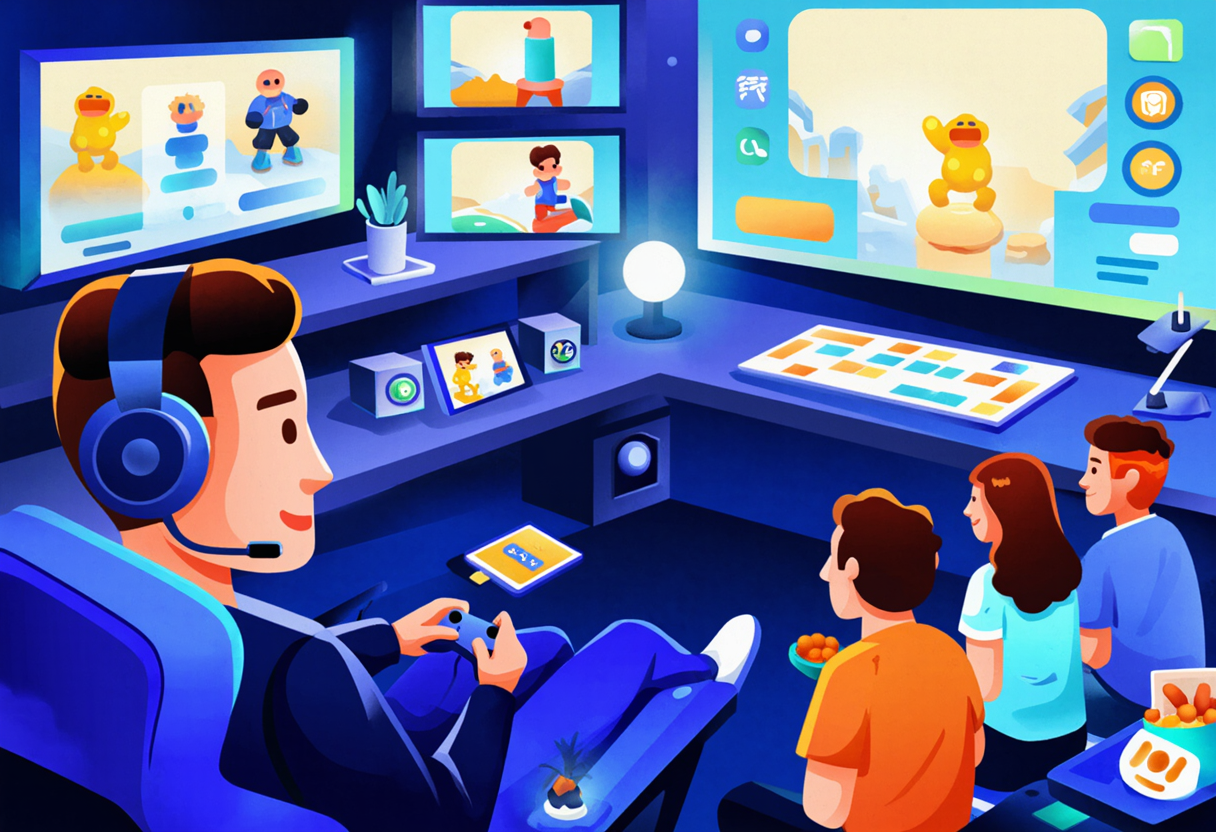The Impact of Gaming Software on Modern Entertainment: Exploring Trends and Developments
Gaming software has transcended mere entertainment, becoming a significant player in the modern media landscape. As it continues to evolve, trends such as mobile gaming, cross-platform play, and E-sports are reshaping user experiences. This article examines these developments, emphasizing their influence on popular culture and the future of entertainment.
Introduction: Gaming Software as a Cultural Force
In today's digital age, gaming software has emerged as a critical cultural phenomenon, influencing not only how we consume entertainment but also how we interact with one another. As gaming continues to penetrate the mainstream, it shapes social behaviors and trends, creating communities around shared interests and experiences. With various genres and platforms constantly being developed, gaming software fosters an unprecedented engagement level within entertainment. This article aims to explore the current trends and developments within the gaming software landscape, shedding light on its impact on modern entertainment and popular culture.
The Rise of Mobile Gaming Software
Mobile gaming software has revolutionized the way players engage with games, leading to an exponential increase in the number of users participating in this medium. With the ubiquity of smartphones and tablets, gaming software designed for mobile platforms offers convenience and accessibility, enabling players to game anytime, anywhere. The growth of genres such as casual and hyper-casual games has played a pivotal role in attracting diverse audiences. By prioritizing user-friendly interfaces and short play sessions, mobile gaming software effectively democratizes gaming, allowing individuals from various demographics to join in the fun. This trend highlights a significant shift in user engagement and showcases the potential for continued expansion within the mobile gaming sector.
Cross-Platform Play: Uniting Gamers
Cross-platform capabilities have become a central feature of modern gaming software, bridging the gap between different gaming environments. This trend allows players to connect and compete with friends across diverse consoles and PCs, enriching the community experience. By overcoming previous limitations set by platform exclusivity, gaming software that supports cross-play cultivates broader player interactions, fostering more vibrant gaming communities. Additionally, this integration enhances the overall longevity of games, as players remain engaged in an expanding social landscape. Cross-platform play not only makes gaming more inclusive but also significantly impacts how developers approach game design, driving innovation and collaboration.
The E-Sports Boom and its Influence on Gaming Software
The meteoric rise of E-sports has transformed gaming software into a spectator sport, drawing millions of fans and players worldwide. Competitive gaming platforms have developed sophisticated software to support E-sports, emphasizing real-time gameplay, analytics, and broadcasting functionalities. This growth has led to the establishment of professional leagues and tournaments, allowing players to monetize their skills while captivating audiences with high-stakes competition. Understanding this phenomenon is crucial for recognizing how gaming software has affected modern entertainment, blurring the lines between traditional sports and gaming. The impact of E-sports on the industry illuminates the potential for gaming software to evolve further, driven by the increased demand for competitive experiences.
Influence of Storytelling in Gaming Software
Storytelling has become an integral aspect of gaming software, enhancing the emotional engagement of players with digital narratives. Developers invest considerable resources in crafting compelling plots and deep character development, immersing players within rich fictional universes. This emphasis on storytelling not only attracts dedicated gaming enthusiasts but also invites in casual players searching for meaningful experiences. As storytelling evolves within gaming software, we see innovative approaches, including player-driven narratives and branching storylines, creating a dynamic relationship between users and their virtual worlds. These developments further illustrate the significance of gaming software as a medium for storytelling in contemporary entertainment.
Conclusion: Gaming Software's Future in Entertainment
The continued evolution of gaming software is poised to have a lasting influence on the entertainment landscape. Modern trends such as mobile accessibility, cross-platform capabilities, and the rise of E-sports are reshaping user experiences and expectations. As gaming software continues to challenge conventional boundaries, it fosters connections and communities among players around the globe. The industry's innovative spirit ensures that gaming will remain a crucial pillar of modern entertainment, continuously engaging audiences and providing fresh forms of expression and interaction. As we look further into the future, the potential of gaming software to reshape our entertainment experiences remains bright and uncharted.
